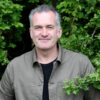- Ripon, North Yorkshire — 17 October 2025
The most recent meeting of Ripon Cathedral’s Rural Forum, the body which brings together senior leaders of some 40 regional organisations with an interest in rural issues, explored the pressing issue of land use. Farmers, conservationists, policymakers, landowners, and community and Church leaders addressed one of the most pressing questions of our time:
“How do we care for the land while securing a just rural future?”
Set against the magnificent backdrop of Ripon Cathedral, the forum was introduced by The Dean of Ripon, the Very Reverend John Dobson, who reaffirmed the cathedral’s role in caring for the environment and supporting the communities of North Yorkshire and the vast Diocese of Leeds. He stressed that by sharing ideas and good practice, positive change could be achieved in addressing the challenges faced by the countryside.
Key Themes and Speakers
Simon Gurney – The Moorland Association: “Re-wetting the Landscape – Peat, Carbon and the Promise of Retention”
Simon Gurney opened the forum with a detailed look at moorland management, highlighting the importance of heather moorland as a defining British landscape. While acknowledging the benefits of peatland restoration, he questioned “one size fits all” approaches to rewetting, emphasizing the need for flexible, evidence-based management techniques. He advocated for the reintroduction of “cool burning” as a cost-effective and environmentally sensitive tool to reduce wildfire risks and maintain biodiversity.
Lisa Harrowsmith – Yorkshire Water: “Beyond Nature – The New Approach”
Representing one of the region’s largest landowners, Lisa Harrowsmith outlined Yorkshire Water’s Beyond Nature initiative — a holistic land management scheme encompassing over 10,000 hectares. The programme integrates farming, biodiversity, education, and community engagement. Notable achievements include extensive tree planting, hedgerow restoration, new ponds for wildlife, and social initiatives such as new permissive footpaths and the Nidderdale DalesBus community transport service.
Dr Vincent Walsh – BioHub: “The Living Laboratory, Washburn Catchment”
Dr Walsh presented the innovative BioHub project, developed with Yorkshire Water and the food industry to pioneer regenerative farming in the Nidderdale landscape. Working with local farmers, BioHub demonstrates how upland farming can deliver environmental, social, and commercial benefits through integrated land use — including agroforestry, water management, biodiversity enhancement, and high-value organic food production.
Tom Hinds – CEO, North York Moors National Park Authority: “Our Land, Our Landscape? Facing the Future Together”
Tom Hinds focused on the far-reaching effects of climate change on the UK’s landscapes. He presented projections suggesting that within 60 years, Yorkshire’s climate could resemble that of southern France, profoundly impacting land use, biodiversity, and rural livelihoods. He outlined the National Park’s partnership with Cranfield University on the Landscapes Observatory project, using AI technology to anticipate and mitigate land-use challenges such as droughts and wildfires.
James Cashmore – Managing Director, The Soil Association: “Understanding the Real Future Drivers of UK Land Use”
James Cashmore closed the forum with a compelling call for a rethinking of our food systems. Linking soil health, human health, and the economy, he highlighted the vast environmental and social costs of industrial agriculture and processed food. He urged for a shift toward organic and regenerative farming supported by education, public procurement reform, and the use of AI to connect consumers with local, sustainable producers.
Conclusion
Throughout the day, a recurring message emerged: the need for collaboration across sectors to ensure that rural communities, land managers, and policymakers can respond effectively to the intertwined challenges of climate change, biodiversity loss, and food security.
As Dean John concluded, “Our shared stewardship of the land is both a responsibility and a privilege. Together, through dialogue and partnership, we can shape a just and sustainable rural future.”







